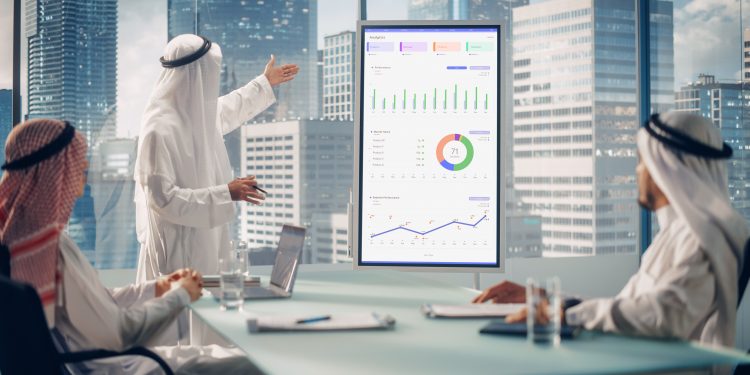Rajiv Jain, the founder of the Florida-based asset management company GQG, has strategically pivoted his investment portfolio towards the Middle East, accumulating a noteworthy $2.8 billion in regional company assets.
This transition, occurring over the last year and a half, is a response to the Middle Eastern governments’ investment-friendly policies and their ambitious initiatives to reduce reliance on oil revenue. GQG’s reallocation of investments from China to the Middle East underscores a significant shift in the company’s investment strategy, demonstrating Jain’s belief in the region’s potential.
GQG, overseeing an impressive $105 billion in assets, is recognized for its pioneering investment strategies. Jain’s Middle Eastern portfolio includes a significant $1 billion investment in the UAE’s International Holding Company (IHC), which boasts a market valuation of $243.6 billion. This investment underscores GQG’s approach to making calculated contrarian investments and highlights the fund’s visionary investment foresight.
Portfolio Realignment
The distribution of GQG’s assets shows a clear departure from its previous China-centric focus, where, in 2017, China accounted for 40% of its emerging markets portfolio. The current emphasis on the Middle East is evidenced by a greater regional investment share compared to China. The GQG Partner Emerging Markets Equity Index, which includes 82 holdings, now shows that Saudi Arabia and the UAE collectively make up 2.31% of the index, representing a significant $316.36 million.
Non-Oil Sector Growth
The UAE’s non-oil sector has seen substantial growth, with an increase of approximately 3.5% over the past year, driven by vigorous domestic activities and investment-friendly reforms. Forecasts for the non-hydrocarbon GDP growth exceed 4% for 2023 and are expected to maintain this rate into 2024. The region’s reputation as a safe haven has spurred capital and labor inflows, leading to a surge in real estate values, particularly in the luxury market.
Additionally, the UAE’s non-oil foreign trade has experienced a surge, witnessing a 14.4% growth in the first half of 2023, thanks to new strategic partnerships aimed at doubling the national economy by 2030.
Ongoing Transformation in Saudi Arabia
Saudi Arabia is also undergoing an economic transformation, with its non-oil sector forecasted to grow between 3-4% annually until 2030. This sector is expected to contribute around 56% to the nation’s GDP by 2030.
The ambitious Vision 2030 diversification plan is propelling growth in key sectors like tourism and construction. The ongoing support for SMEs and labor market enhancements are set to bolster the non-oil private sector’s growth.
The UAE and Saudi Arabia are becoming increasingly appealing to fund managers looking for investment opportunities in the Middle East. Their strong economic performance, coupled with diversification efforts, has resulted in GDP growth projections of over 4% in 2024.
Robust capital markets in these countries, characterized by exchanges such as the DFM and TASI, offer an array of listings and are backed by sophisticated regulatory frameworks, which draw considerable foreign investments. With their investor-friendly incentives, including competitive tax policies and free zones offering zero corporate tax, the countries are enticing foreign fund managers to set up their operations locally.
The stable political climate and potential for ongoing growth and diversification make the UAE and Saudi Arabia attractive destinations for fund managers in search of dynamic emerging markets.


